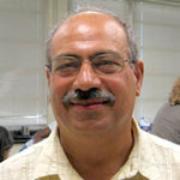During the three-day course, participants receive a blend of practical laboratory sessions supported by lectures and discussions. By the end of the course, participants are able to isolate the fungi spores and use them as bio-fertilizer. In addition, participants are able to determine the efficiency at which the spores make associations and if they are working. Participants also receive technical manuals containing all experimental protocols.
The course provides up-to-date training and instruction and completing the course gives attendees both knowledge and credibility. Upon conclusion, each participant receives a Certificate of Completion. Class size is limited and early registration is advisable.
Who Should Attend?
|
Farmers
|
Ecologists
|
Plant Scientists
|
Landscapers
|
|
Environmental Consultants
|
Organic Farmers
|
Biologists
|
Microbiologists
|
|
Environmental Engineers
|
Agricultural Scientists
|
Agricultural Engineers
|
Foresters
|
|
Water Scientists
|
Soil Scientists
|
Extension Agents
|
Horticulturists
|
|
Consultants
|
Land Use Planners
|
Environmental Scientists
|
Others Seeking Rigorous Training
|
14 Ways to Benefit
Upon completion of this course, you will be able to:
- Examine the mycorrhizal status of plants.
- Evaluate the mycorrhizal status of soils
- Estimate root length percent colonization
- Estimate the mycorrhizal inoculum potential of plant
- Estimate the mycorrhizal inoculum potential of soils
- Certify the quality and quantity of mycorrhizal inoculum
- Identify and describe mycorrhizal fungi
- Culture and multiply mycorrhizal inoculum
- Mass production of mycorrhizal inoculum
- Use mycorrhizal fungi as biofertilizers
- Use mycorrhizal inoculum to improve plant growth and development
- Use mycorrhizal association to improve soil quality
- Use mycorrhizal fungi in cleaning contaminated soils
- Advance your overall training and expertise to be an environmental consultant, soil microbiology tester, mycorrhizal estimator, or mycorrhizal inoculum supplier
In Person Course Meeting Schedule
| Day 1 - Monday |
| 09:00 - 10:00 |
Welcome and Course Overview |
| 10:00 - 12:00 |
Laboratory: Overview
1. Sampling Techniques
2. Collect Field Samples |
| 12:00 - 13:00 |
Lunch on own |
| 13:00 - 17:00 |
Lecture - Importance of mycorrhizal fungi to agronomy and forestry:
1. General examples from each system
2. General overview of why they are beneficial
- Northern vs Temperate vs Tropical Latitudes
- When are they NOT beneficial
- When are they used |
| Day 2 - Tuesday |
| 09:00 - 12:00 |
Lecture - Physiology and Ecology of Mycorrhizal Fungi
1. Overview Physiology of AM fungi
2. Specificity (and lack thereof) in mycorrhizal relations
3. The colonization process
4. Extracellular enzymes and the release of nutrients
5. The roles of helper bacteria and the mycorrhizosphere |
| 12:00 - 13:00 |
Lunch on own |
| 13:00 - 17:00 |
Laboratory – Practical Applications:
1. Development of inocula
- Production
- Variety of carrier materials
2. Industry standards for inocula
3. Characterization and evaluation of inocula
- Spore Estimation
- Estimate Root Colonization
- Mycorrhizal Inoculum Potential (MIP) Test |
| Day 3 - Wednesday |
| 09:00 - 12:00 |
Lecture - Diversity of fungi
1. Why should we care about the diversity
2. Taxonomic and Physiological relationships |
| 12:00 - 13:00 |
Lunch on own |
| 13:00 - 16:00 |
Laboratory – Practical Techniques:
1. Microscope Observation
2. Morphological Identification
3. Pot Culture Initiation |
| 16:00 - 17:00 |
Discussion and Questions |
Course Instructors
 
Abid Al Agely
Abid is a mycologist and microbial ecologist with special interest in phytoremediation.
Email: aaag@ufl.edu
|
 
Andy Ogram
Andy is a microbiologist and microbial ecologist with an interest in biogeochemical cycling.
Email: aogram@ufl.edu
|
Registration Information
- Enrollment is limited and registrations will be accepted on a first-come, first-served basis.
- Registration payment must be received to secure a space.
- Payment must be received by the applicable deadline to qualify for the early fee.
- The registration fee includes the educational program (via Zoom for Virtual Training) and one copy of the course manual.
- On-demand students who complete the course can arrange a one-hour Zoom session with an instructor.
How to select the right class for you
Mycorrhizal training is offered in three formats; on-demand (year-round), Zoom meeting (three classes a year), and On-Campus class (once a year). In all three formats, the online materials will be open for you six months after finishing the class. During the on-campus class, field sampling is on the first day or you can bring your own samples to work on. The other two formats (on-demand and Zoom classes), you can finish the class, then do your own sampling to practice. Help with your mycorrhizal project can be provided through email or a one-hour Zoom meeting that can be arranged in advance.
It is recommended to go through the needed materials to select the right class. (Mycorrhizal Training Materials) If you have the materials and find instructions and videos are enough, the on-demand class could be the right one for you. If you have the materials and need instructions for lectures and laboratory protocols, the Zoom class could be right for you. If you find in-person and hands-on-experience is needed and you do not have the needed materials, then the on-campus class could be the right one for you. Contact Abid with any questions.
Virtual Training (US$250): TBA
Photos from Previous Mycorrhizal Training Sessions
2021
2019
2016




